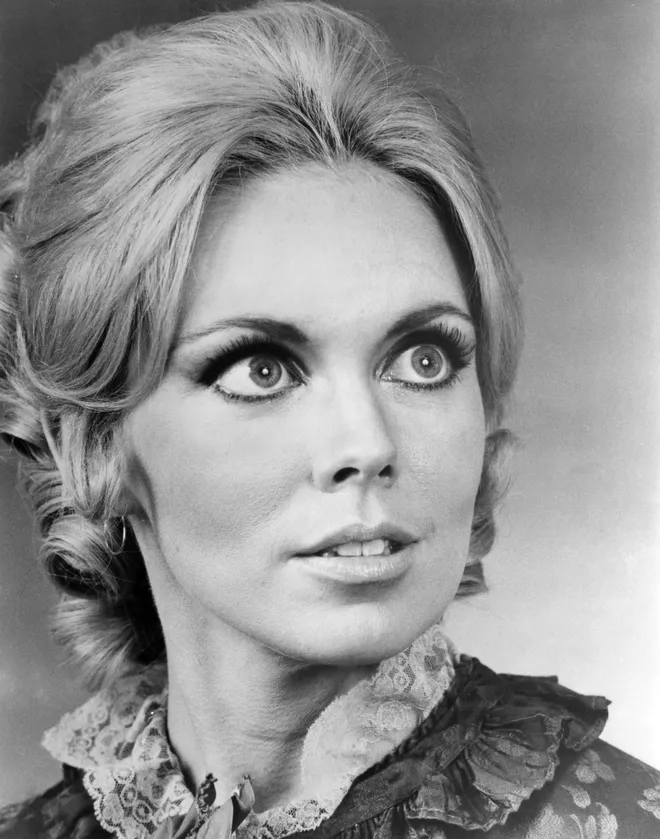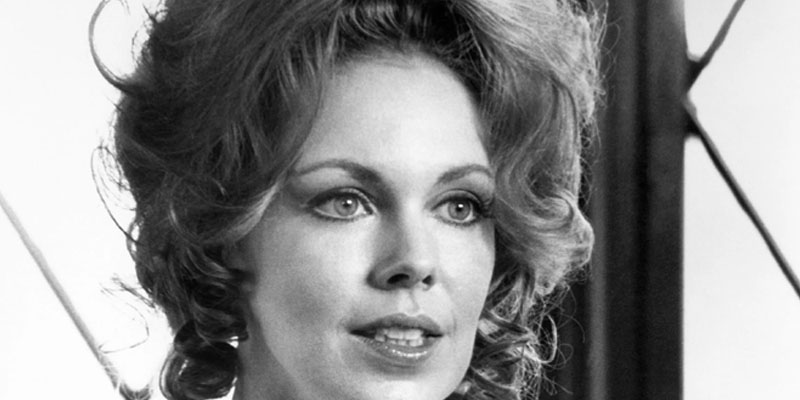Lara Parker, who found small-screen fame in the 1960s and ’70s as a beguiling and vengeful witch on the popular Gothic soap opera “Dark Shadows,” died at her home in Topanga, Calif. She was 84.
The cause was cancer, said Kathryn Leigh Scott, a friend and fellow “Dark Shadows” actress.

“Dark Shadows,” seen daily on ABC from 1966 to 1971, was a departure from standard soap opera fare, blending romantic intrigue with horror and science fiction. The show chronicled a wealthy and eccentric Maine family dealing with the usual soap melodramas — but also time travel, ghosts, werewolves and vampires.
With her icy beauty and elegant demeanor, Ms. Parker proved coolly seductive in her primary role among several on the show, Angelique, an 18th-century servant girl and witch who puts a curse on a wealthy shipping scion, Barnabas Collins (Jonathan Frid) after he spurns her for Ms. Scott’s character, Josette, turning him into a vampire and dooming the two to carry on a tempestuous cycle of passion and revenge as they time-hop through history.
Still, Ms. Parker’s relationship with the show that made her famous was far from over: “Dark Shadows” become an enduring cult favorite to new generations of horror fans, and Ms. Parker fed their obsession after turning her attention to writing. In 1998, she published “Dark Shadows: Angelique’s Descent,” the first of her four novels inspired by the show, which chronicled the early life of her character.
She also helped revive the show on the big screen, appearing, along with her former co-stars Ms. Scott, Mr. Frid and David Selby, in a cameo role in the 2012 feature-film version of “Dark Shadows,” directed by Tim Burton and starring Johnny Depp as Barnabas, with Eva Green as Angelique.
Ms. Parker’s survivors include her husband, Jim Hawkins; two sons, Rick and Andy Parker; a daughter, Caitlin Hawkins; and a grandson.
In the years following her breakout role, Ms. Parker discussed the significance of the show, which in her view helped modernize — and sexualize — the vampire figure in the years before “Twilight.” To her, this seemed only natural.
“The bite itself is like the act of sex,” she once said. “There is penetration, and there is pleasure and there is abandonment.”
“The story of the vampire goes back to before the Egyptians, before the Greeks, and exists in every single culture,” she added. “Why is it so widespread? Not because it’s true, but because it contains the truth of our fears and our desires.”
